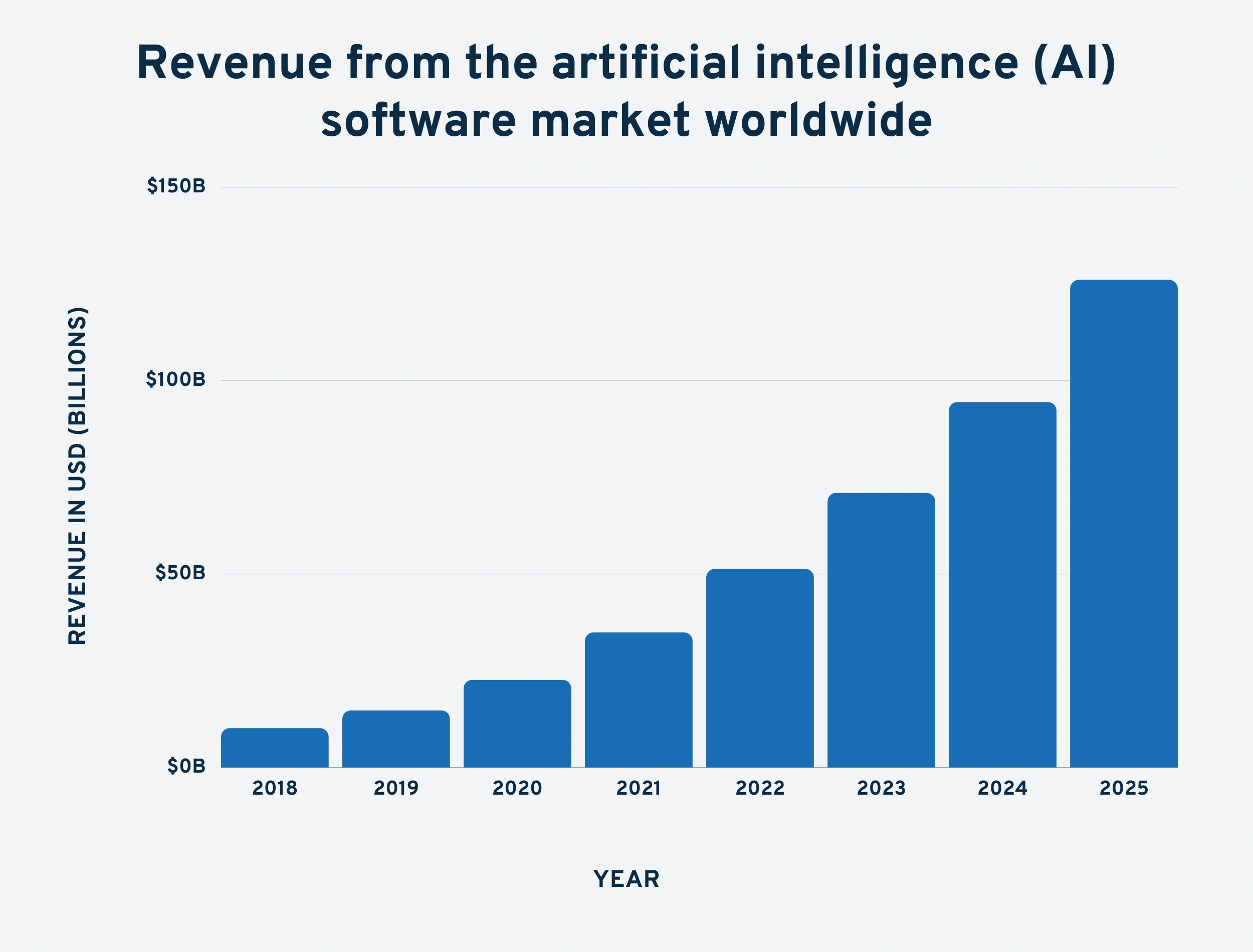Google Search AI: Data Usage Practices After Opt-Out

Table of Contents
What Data Does Google Still Collect After Opting Out of Google Search AI?
While opting out disables personalized features like tailored search results and ads, Google still collects some data to maintain core search functionality and improve its services. This data collection is essential for providing a functional and secure search experience for all users.
Essential Search Functionality Data:
- IP Address: Your IP address is necessary to route your search request and deliver results. This data is often anonymized and aggregated.
- Search Query: Your search query is needed to provide relevant search results. Google employs techniques to anonymize search queries after a certain period, protecting your individual search history.
- Search Settings: Information like your preferred language and region helps Google tailor the search results to your location and linguistic preferences. These settings are basic to providing relevant search results.
This data is crucial for the basic functioning of Google Search. Google is committed to anonymizing this information whenever possible, balancing functionality with user privacy.
System Improvement Data:
- Aggregated, Anonymized Data: Google collects aggregated and anonymized data to improve its algorithms and infrastructure. This includes data about search patterns, popular queries, and click-through rates. This aggregated data helps Google understand general search trends without revealing individual user information.
- Differential Privacy Techniques: Google uses advanced techniques like differential privacy to protect individual user information while still gathering valuable data for improvements. This method adds carefully controlled noise to the data, making it impossible to identify individual users while preserving statistical significance.
This process ensures that improvements benefit all users, while maintaining user privacy. Understanding how Google utilizes this data is key to grasping their commitment to both service improvement and data protection.
Security and Abuse Prevention Data:
- Data for Combating Spam and Malware: Google uses data to identify and prevent spam, malware, and other malicious activities. This helps maintain a safe and reliable search environment for all users.
- Transparency in Security Practices: Google is transparent about its commitment to security. They regularly publish reports detailing their efforts to combat malicious activities and protect user data.
Protecting users from malicious content is paramount. The use of data in this context enhances the security and trustworthiness of Google Search.
How Google Uses Data Post-Opt-Out
After you opt out of Google Search AI personalization, the collected data is primarily used to improve the overall search experience and enhance security for all users.
Search Algorithm Improvements:
- Better Search Results: Aggregated, anonymized data helps Google fine-tune its search algorithms, making them more efficient and effective in providing relevant results. This improves the search experience for everyone, regardless of their personalization settings.
- Improved Relevance: Data analysis helps Google understand broader search trends, allowing them to improve the relevance and ranking of search results. This improves the search experience for all users.
These improvements aim to make Google Search better for everyone, not just those who haven't opted out.
Security Enhancements:
- Identifying and Preventing Threats: Data analysis helps Google identify and respond to emerging threats like phishing scams and malware. This is crucial to maintaining a safe search environment.
- Robust Security Infrastructure: Google's investment in robust security infrastructure relies heavily on data analysis to identify and address security vulnerabilities.
This ongoing effort to improve security ensures a safer online environment for all users.
System Maintenance and Stability:
- System Monitoring: Data helps Google monitor the performance and stability of its search infrastructure. This allows for proactive maintenance and optimization.
- Optimized Resource Allocation: Data-driven insights enable Google to optimize resource allocation, ensuring faster search speeds and improved reliability.
This data-driven approach leads to a smoother and more efficient search experience for all users.
Maintaining Control Over Your Data After Opting Out
Even after opting out, you retain significant control over your data through various Google account settings and privacy controls.
Google Account Settings:
- Reviewing Your Data: Access your Google account settings to review the data associated with your account, including search history and other activity.
- Downloading Your Data: Download a copy of your data for your records.
- Deleting Your Data: Initiate requests to delete specific data associated with your Google account. [Link to Google Account Help]
Understanding these settings allows for proactive management of your personal information.
Privacy Controls:
- Customizing Privacy Settings: Google Search offers options to customize privacy settings related to data collection and usage, enabling you to fine-tune your preferences.
- Web & App Activity: Manage your Web & App Activity settings to control the data Google collects from your browsing activity.
Utilizing these controls provides granular control over the level of data collected.
Data Deletion Requests:
- Requesting Data Deletion: You can request the deletion of your personal data from Google's systems following their procedures.
- Google's Privacy Policy: Familiarize yourself with Google's Privacy Policy to understand their data handling practices and your rights. [Link to Google's Privacy Policy]
- Data Subject Access Request: Understand your rights under data protection laws and how to submit a data subject access request.
Knowing your rights and how to exercise them is crucial for data privacy.
Conclusion
Opting out of Google Search AI personalization doesn't mean relinquishing all control over your data. While some data is still collected for essential functions, Google employs robust anonymization and privacy-preserving techniques. By understanding Google's data usage practices after opt-out and utilizing available account controls, you can maintain a balance between benefiting from Google Search and safeguarding your online privacy. Learn more about Google's commitment to user privacy by reviewing their [link to Google's Privacy Policy]. Take control of your data today by understanding Google Search AI's data usage practices post-opt-out.

Featured Posts
-
 Why We Love A Special Little Bag A Look At Its Enduring Charm
May 05, 2025
Why We Love A Special Little Bag A Look At Its Enduring Charm
May 05, 2025 -
 Nhl Playoffs 2024 Matchups And Stanley Cup Predictions
May 05, 2025
Nhl Playoffs 2024 Matchups And Stanley Cup Predictions
May 05, 2025 -
 The Cusma Negotiations Carneys High Stakes Meeting With Trump
May 05, 2025
The Cusma Negotiations Carneys High Stakes Meeting With Trump
May 05, 2025 -
 Flames Wolf Discusses Playoff Potential And Calder Trophy Contender
May 05, 2025
Flames Wolf Discusses Playoff Potential And Calder Trophy Contender
May 05, 2025 -
 The Potent Powder Fueling Cocaines Global Rise A Narco Sub Investigation
May 05, 2025
The Potent Powder Fueling Cocaines Global Rise A Narco Sub Investigation
May 05, 2025
Latest Posts
-
 Will The Oilers Rebound Against The Canadiens A Morning Coffee Preview
May 05, 2025
Will The Oilers Rebound Against The Canadiens A Morning Coffee Preview
May 05, 2025 -
 Oilers Vs Canadiens Morning Coffee Predictions And Bounce Back Potential
May 05, 2025
Oilers Vs Canadiens Morning Coffee Predictions And Bounce Back Potential
May 05, 2025 -
 Nhl Highlights Avalanche Defeat Panthers Despite Late Comeback
May 05, 2025
Nhl Highlights Avalanche Defeat Panthers Despite Late Comeback
May 05, 2025 -
 Johnston And Rantanen Power Avalanche To Victory Over Panthers
May 05, 2025
Johnston And Rantanen Power Avalanche To Victory Over Panthers
May 05, 2025 -
 First Round Nhl Playoffs Key Factors And Predictions
May 05, 2025
First Round Nhl Playoffs Key Factors And Predictions
May 05, 2025
